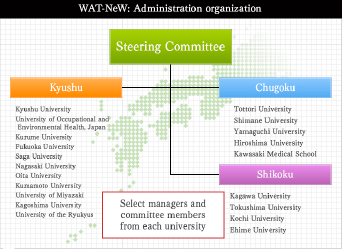


Japan’s life sciences research is among the best in the world. In spite of this, Japan has lagged behind in the development of a framework for practical application of the fruits of such research. To address this issue, life science has now been positioned as one of the four major thrust areas in the “Third Science and Technology Basic Plan” and the Ministry of Education, Culture, Sports, Science and Technology (MEXT) in 2007 started a program for preparation of translational research centers as part of the aforesaid basic plan. This program was upgraded in 2012 as the Translational Research Network Program. In the same year, MHLW initiated a Core Clinical Research Hospitals Associated Project and thus a support framework for promotion of clinical trials and late stage clinical studies and for development of precision medicine was created. Furthermore, in the current year, it was decided to pursue as a national initiative, the strengthening of industrial competitiveness in the field of pharmaceuticals and medical devises (including the promotion of research for the practical application of ground breaking technologies) under the banner of “Comprehensive Strategy for Innovation in Science and Technology – Taking up the Challenges of Creating a New Japan”. The aims of this initiative are: “To promote the development of non-invasive and minimally invasive testing, early diagnosis technology, radiotherapy technology, medical devices such as nano biodevices and surgical robots, and medical software applications for supporting diagnosis; and research and development for creating innovative pharmaceuticals such as biologics and the creation of support frameworks for them; and concurrently promote research for evaluating the effectiveness and the safety of drugs, medical devices, etc. based on the latest technology and prepare guidelines for the development and examination of innovative medical technologies”. We may say that in Japan we are at the start of a new path to “Life Innovation”, a major national policy.
Kyushu University Hospital CCTR was chosen as a center for MEXT’s Translational Research Network Program and also for MHLW’s Clinical Research Core Hospital Program. Since then, CCTR has been searching for “promising research seeds” not only in Kyushu University but also other academic institutions in the whole of West Japan and supporting and promoting the development of such seeds. A number of seeds have already been identified and “first on humans” trials have been started for more than one novel drug. In the current financial year, we created the West Japan Academia Translational Research Network (WAT-NeW) for promotion of “Life Innovation” among academic institutions of West Japan.

The West Japan Academia Translational Research Network (WAT-NeW) was established by CCTR to strengthen the linkage between basic research and clinical medicine research and to set up a network of academic institutions. This was done to address the difficulty experienced in applying the fruits of basic studies in life sciences and medical science undertaken in universities to the development of new medical technologies and wider development of medical science.
We now have the participation of 26 universities of western Japan.

For details please see the website:
https://wat-new.org/
